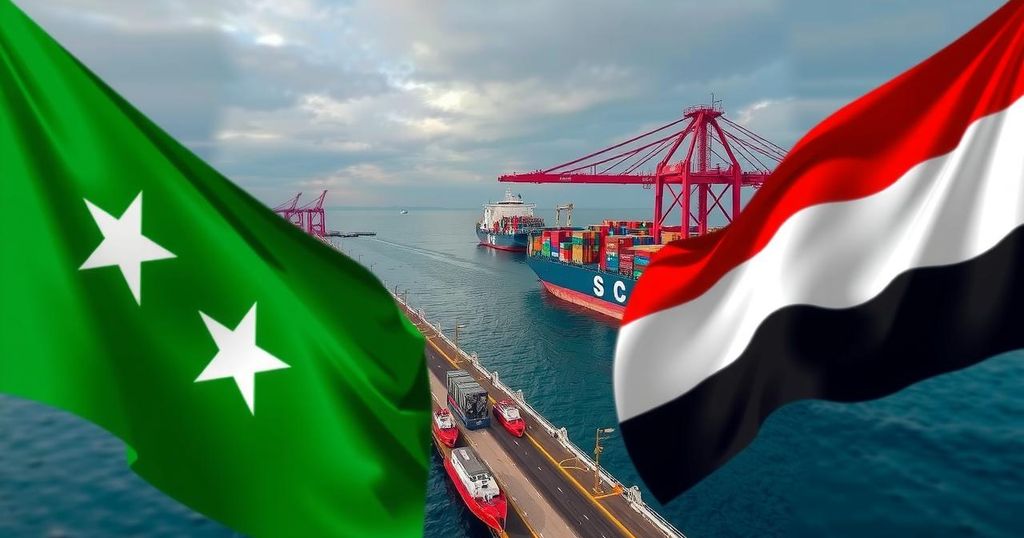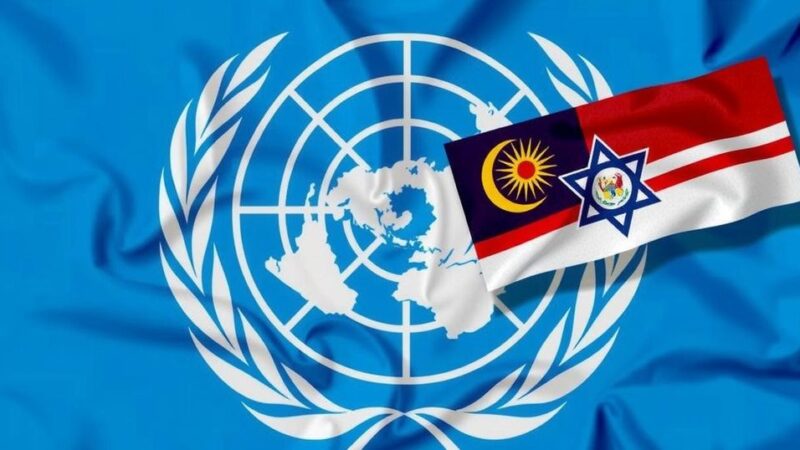Sudan has cancelled a port agreement with the UAE in a move seen as a protest against alleged Emirati support for the Rapid Support Forces, amid ongoing conflict with Sudan’s military. The decision, celebrated by local residents seeking more beneficial investments, reflects a shift towards asserting national sovereignty. However, it also highlights Sudan’s pressing humanitarian crisis and strategic positioning amidst regional tensions.
Sudan recently terminated a port agreement with the United Arab Emirates (UAE) amid concerns regarding Abu Dhabi’s alleged backing of the Rapid Support Forces (RSF), a paramilitary group embroiled in conflict with Sudan’s military. Finance Minister Jibril Ibrahim announced the cancellation of the memorandum of understanding for the Abu Amama port project on the Red Sea, emphasizing that this decision was aimed at safeguarding Sudan’s sovereignty and was not legally binding. During a press conference held in Port Sudan, Mr. Ibrahim asserted that Sudan would not relinquish any portion of its coastline to foreign powers, particularly in light of mounting allegations that the UAE has been providing support to the RSF since the onset of the conflict in April 2023. The cancellation serves not only as a protest against these allegations but may also be a strategic move to limit the UAE’s influence within Sudan. This decision marks a significant shift in Sudan’s foreign policy, reinforcing its commitment to national autonomy amidst ongoing regional tensions. Historically, the relationship between Sudan and the UAE has been marked by both collaboration and friction. An agreement signed in December 2022 had aimed at developing the Abu Amama port with investments of approximately $6 billion, covering a free trade zone and agricultural initiatives, but this recent action demonstrates a reassessment of that commitment. The local community in eastern Sudan, particularly Port Sudan residents, has largely received the news of the project’s cancellation positively. They express a desire for the government to prioritize local infrastructure and job creation instead of large-scale foreign investments, which they fear may not benefit the local economy. While this cancellation may align with community aspirations, it presents challenges for the Sudanese government amidst a worsening humanitarian crisis characterized by high inflation, currency devaluation, and severe living conditions for many citizens. Since the start of the conflict, Sudan has witnessed catastrophic impacts, with over 18,000 fatalities, 11 million displaced individuals, and a humanitarian situation that necessitates urgent international assistance. Additionally, the repercussions of this cancellation extend beyond Sudan’s borders, affecting relations with regional powers, including Saudi Arabia and Egypt, who also hold interests in the Red Sea. The need for Sudan to balance these influences while navigating its internal political factions remains critical as the nation addresses the challenges of governance amid a complex and volatile landscape.
The cancellation of the port deal with the UAE underscores a shift in Sudan’s foreign policy strategy, illustrating its intention to assert greater control over its national interests amid accusations of foreign interference. The context of this decision is rooted in conflict dynamics with the RSF and challenges the Sudanese government faces as it seeks to unify various political factions. Additionally, Sudan is grappling with a severe humanitarian crisis, exacerbated by ongoing violence and economic instability.
In essence, Sudan’s cancellation of the port agreement with the UAE is a multifaceted response to both allegations of external interference in its internal affairs and local demands for economic development. The decision signals a commitment to national sovereignty and reflects a broader reassessment of external relationships during a tumultuous period in Sudan’s history. As the country navigates a complex political landscape, it must balance local interests with international relations.
Original Source: www.theeastafrican.co.ke






